Rabies
What is rabies?
Rabies is a deadly disease caused by a virus that affects the nervous system and it is transmitted by the saliva of an infected animal through a bite or when the infected saliva comes in contact with the mucous membrane (eyes, nose, or mouth) or an opening in the skin. It kills almost any animal or mammal infected with rabies.
Only mammals get rabies. Skunks, bats, foxes, raccoons, dogs, cats, cattle, horse and other livestock animals are most likely to get it.
Rabies can be prevented in cats, dogs, and livestock with a rabies vaccine.
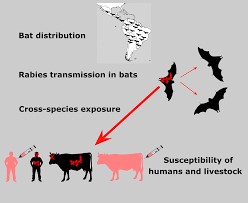
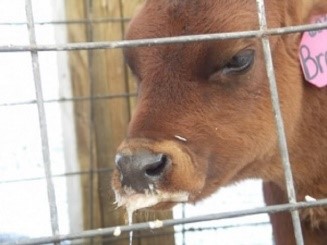
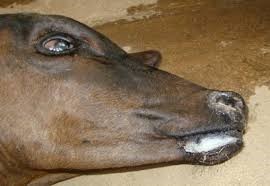
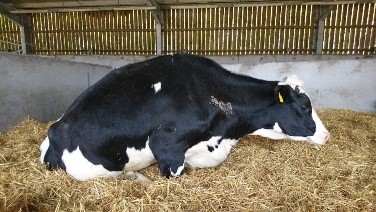
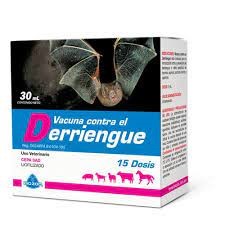
Stages of Rabies
- Furious Stage: The animal becomes irritable and with the slightest provocation may become vicious and aggressive and also have the tendency to be hyper-reactive and bite at anything near.
- Paralytic Stage: It is caused by damage to motor neurons leading to paralysis in the rear limbs and drooling of the mouth. Death is usually caused by respiratory arrest.
Signs of Rabies
It is not always possible to determine if an animal is infected with rabies through simple observation. Signs which can lead to suspect that an animal is diagnosed with rabies are:
- Change in behavior;
- Excess drooling and foaming at the mouth;
- Nervousness;
- Aggressiveness;
- Depression;
- Inappetence;
- Circling,
- Altered vocalization;
- Seizures;
- Difficulty eating, drinking, and swallowing;
- Incoordination of hindquarters—unable to stand; and
- Abnormal behavior such as:
- wild animals losing fear of humans, and
- animals normally active at night being seen during the day.
Prevention
Rabies prevention can be done through vaccinations. It is unwise to await the occurrence of a disease before vaccinating, as vaccines take 10-14 days before they provide immunity.
- Rabies vaccine is to be administered from 3 months of age. Booster at 60 days then once every 12 months.
- Always read instructions on each bottle for dosage and route of administration.
What You Can Do!
- Vaccinate your dogs, cats, & livestock
- Vaccinating animals is the single most effective way of protecting your livestock, your pets, and family from rabies.
- Restrict animals to your property and don’t leave garbage or pet food uncovered outside or uncovered as it may attract wild or stray animals.
- Report to BLPA, BAHA, or Health Department if your pet or livestock is attacked or bitten by a wild animal.
- Report unusual behavior of livestock to BLPA, BAHA, or Health Department.
RABIES IN YOUNG CALVES:
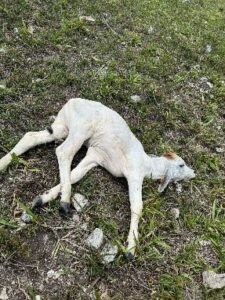
Rabies recently re-emerged in two very young calves—aged six and seven weeks—in the Spanish Lookout area, underscoring a critical vaccination gap among Belizean cattle producers. Maternal vaccination is the only practical way to confer immediate passive immunity via colostrum, yet many producers in Belize are not vaccinating their cows annually as recommended. Failure to vaccinate adult cows not only endangers neonates but also perpetuates herd-level virus circulation with serious livestock and public health consequences.
Background:
Detection of Cases
Two calves, aged six and seven weeks, in the Spanish Lookout area tested positive for rabies, as confirmed by the Belize Agricultural Health Authority (BAHA) surveillance program.
Why Young Calves
Test Positive
- Perinatal or Early Postnatal Exposure – Rabies virus is most often transmitted
via saliva from the bite of an infected animal, notably vampire bats in
Belize. Young calves can be exposed through even minor bites or
contamination of mucous membranes (licking) . - Lack of Passive Immunity – Calves rely entirely on colostrum for initial protection. If the dam has not been vaccinated, her colostrum contains no rabies-specific immunoglobulins, leaving the newborn with zero passive defence during its critical first weeks.
Importance of Maternal Vaccination
Passive Immunity via Colostrum
When a cow is vaccinated against rabies prior to calving, she produces high titres of neutralizing antibodies that are concentrated in colostrum. These maternal antibodies can protect calves during the first 8–12 weeks of life, a window before they mount their own adaptive response.
Herd Immunity and Risk Reduction
Routine vaccination of all breeding stock reduces the overall prevalence of rabies virus in the environment, lowering bite-based transmission risk for every animal in the herd. This “herd immunity” effect is essential in endemic regions where wildlife vectors are present year-round.
Outbreak Control
Occurrences of rabies in very young calves signal a breakdown in adult cow vaccination coverage. By ensuring pregnant cows are vaccinated each year—and maintaining strict cold-chain protocols—producers can prevent clusters of fatal cases and halt local outbreaks before they spread to other livestock or humans.
Current Situation
in Belize
Despite annual reminders from BAHA and the Ministry of Agriculture, many cattle producers in Belize have not maintained up-to-date rabies vaccination for their herds:
- BAHA “Blackleg & Rabies Advisory” (Jan 2021): Strongly urged annual rabies vaccination for all cattle, with follow-ups coordinated by district livestock officers.
- Government of Belize Press Office (2017): Recommended vaccinating calves as early as three months if born to vaccinated dams, and urged immediate vaccination of any unprotected stock.
- Advisory on Combined Vaccines (2019): Emphasized the necessity of maintaining cold-chain integrity for multivalent vaccines (including rabies) to ensure efficacy
Importance of Maternal Vaccination
Recommendations for Producers
- Annual Vaccination of Breeding Cows: Administer a licensed rabies vaccine to all pregnant and non-pregnant cows at least 4–6 weeks before expected calving
- Cold-Chain Management: Store and transport vaccines at recommended temperatures to preserve immunogenicity; discard any dose exposed to temperature excursions
- Calf Vaccination Protocols: In high-risk endemic areas, consider first rabies vaccination of calves at two months of age regardless of maternal status, with a booster at 4–6 months
- Record Keeping and Follow-Up: Maintain detailed vaccination logs; schedule and track annual revaccinations with district livestock officers to ensure 100% herd coverage Public Health Implications
Rabies is invariably fatal once clinical signs appear in animals or humans. Infected calves pose a direct zoonotic risk to farm workers, children, and veterinarians handling them. Preventing rabies in livestock through maternal and herd vaccination is therefore a critical component of One Health strategies in Belize.
